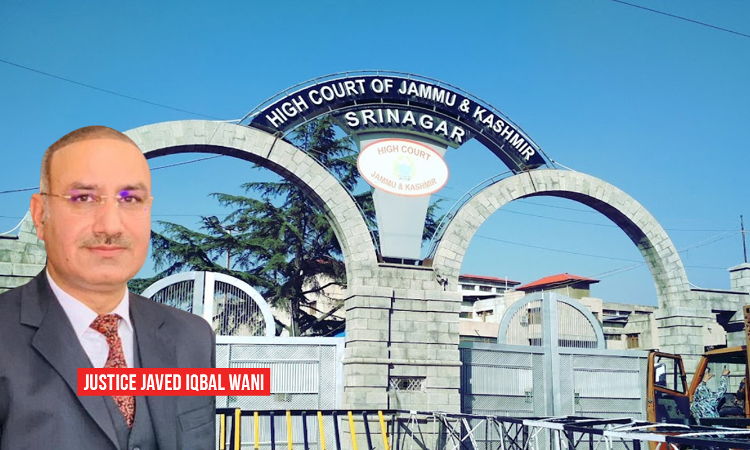- Home
- /
- High Courts
- /
- High Court of J & K and Ladakh
- /
- Ejectment Allowed For...
Ejectment Allowed For Reconstruction But Rebuilt Property Must Be Offered To Evicted Tenant At Market Rate: J&K High Court
LIVELAW NEWS NETWORK
27 Feb 2025 5:35 PM IST
Shedding light on the mandate of Section 13 of J&K Houses & Shops Rent Control Act 1966 the Jammu and Kashmir and Ladakh High Court has reaffirmed the legal principle that while the law permits a suit for ejectment on the ground of personal requirement for reconstruction, it forbids a landlord from occupying a building obtained solely on the ground of rebuilding without offering the...
Shedding light on the mandate of Section 13 of J&K Houses & Shops Rent Control Act 1966 the Jammu and Kashmir and Ladakh High Court has reaffirmed the legal principle that while the law permits a suit for ejectment on the ground of personal requirement for reconstruction, it forbids a landlord from occupying a building obtained solely on the ground of rebuilding without offering the same to the evicted tenant at market rent.
Highlighting the first right of tenancy Justice Javed Iqbal Wani emphasized that under Section 13(3), once reconstruction is complete, the tenant has the "first right of tenancy" upon payment of rent at market rate.
These observations emerged from a dispute that originated over a shop in Jammu, under the tenancy of the late Chet Ram. The landlord, Sham Dass Gupta, filed a suit for eviction against Chet Ram before the First Additional Munsiff, Jammu. The suit was dismissed, but on appeal, the Principal District Judge, Jammu, reversed the decision, decreeing eviction.
However, the High Court of J&K set aside this decree, prompting the landlords to approach the Supreme Court. The Supreme Court decreed in favor of the landlords on 15.04.2010, which was modified on 05.10.2010 upon a review petition by the tenants. The modification allowed eviction for reconstruction while granting tenants the right of re-entry under Section 13 of the Act of 1966.
The tenants contended before the Rent Controller, Jammu, that the landlords, having completed the reconstruction, were obligated to restore possession of the shop to them at the prevailing market rent. They argued that they were prepared to comply with the rent requirements under Section 13(3) of the Act of 1966.
Conversely, the landlords maintained that they had commenced the construction within the stipulated six-month period and had no obligation to restore the shop to the tenants. They asserted that the premises were intended for personal use and not for letting out, rendering the tenant's application under Section 13 of the Act misconceived and not maintainable.
The landlords also argued that the Act merely provided an option for compensation instead of restoration of possession, emphasizing that Section 13(3) applied only when the premises were re-let, not when retained for personal use.
Undertaking an exhaustive analysis of the provisions of the Act of 1966 and the specific circumstances of the case, the court noted that Section 13 of the Act of 1966 provides specific scenarios under which a tenant is entitled to restoration of possession:
- If the building or rebuilding is not commenced within six months of eviction (Section 13(1)).
- If the premises are not occupied by the landlord or a beneficiary within two months of vacation by the tenant.
- If the premises are re-let within six months without the Controller's permission.
Justice Wani explained that these conditions allow the Rent Controller to either restore possession to the tenant or grant compensation. However, the tenants' application was specifically under Section 13(3), which operates differently and is devoid of the time constraints outlined in Section 13(1), he pointed.
Clarifying the legal principle on personal requirement in comparison with rebuilding the court cited the judgment in Amar Nath v. Hans Raj (AIR 1984 J&K 67), stating,
"Law does not forbid a suit for ejectment on the ground of personal requirement to permit the landlord to occupy it after reconstruction, but law forbids a landlord in occupying a building, the possession of which he has secured by a decree of ejectment solely on the ground that he requires the building for the purpose of building or rebuilding."
The court clarified that where a landlord secures eviction for personal occupation, there is no obligation to offer the premises to the tenant after reconstruction. However, where eviction is solely for reconstruction, the law mandates offering re-tenancy to the evicted tenant at market rent under Section 13(3), the bench underscored.
Noting the misapplication of law by the appellate Court the High Court stated that the appellate court had misapplied Section 13(1) instead of Section 13(3). The appellate court's observation on the status of the building was deemed erroneous, especially in light of the Commissioner's report establishing the completion of reconstruction.
Addressing the landlords' plea concerning the repeal of the Act of 1966 and the applicability of the J&K Residential and Commercial Act of 2012, the court referred to a Division Bench order dated 13.12.2012, which stated that pending suits and appeals would continue under the old Act, nullifying the landlords' argument.
In view of these observations the landlords were directed to hand over the shop's possession to the tenants within ten days. The tenants were instructed to pay rent at the current market rate, with the landlords retaining the right to seek fair rent determination under Section 8 of the Act of 1966.
In case of non-compliance by the landlords, the Superintendent of Police was mandated to enforce the order, ensuring the handover of possession to the tenants.
Case Title: Mohit Mahajan Vs Sham Dass Gupta
Citation: 2025 LiveLaw (JKL) 62



